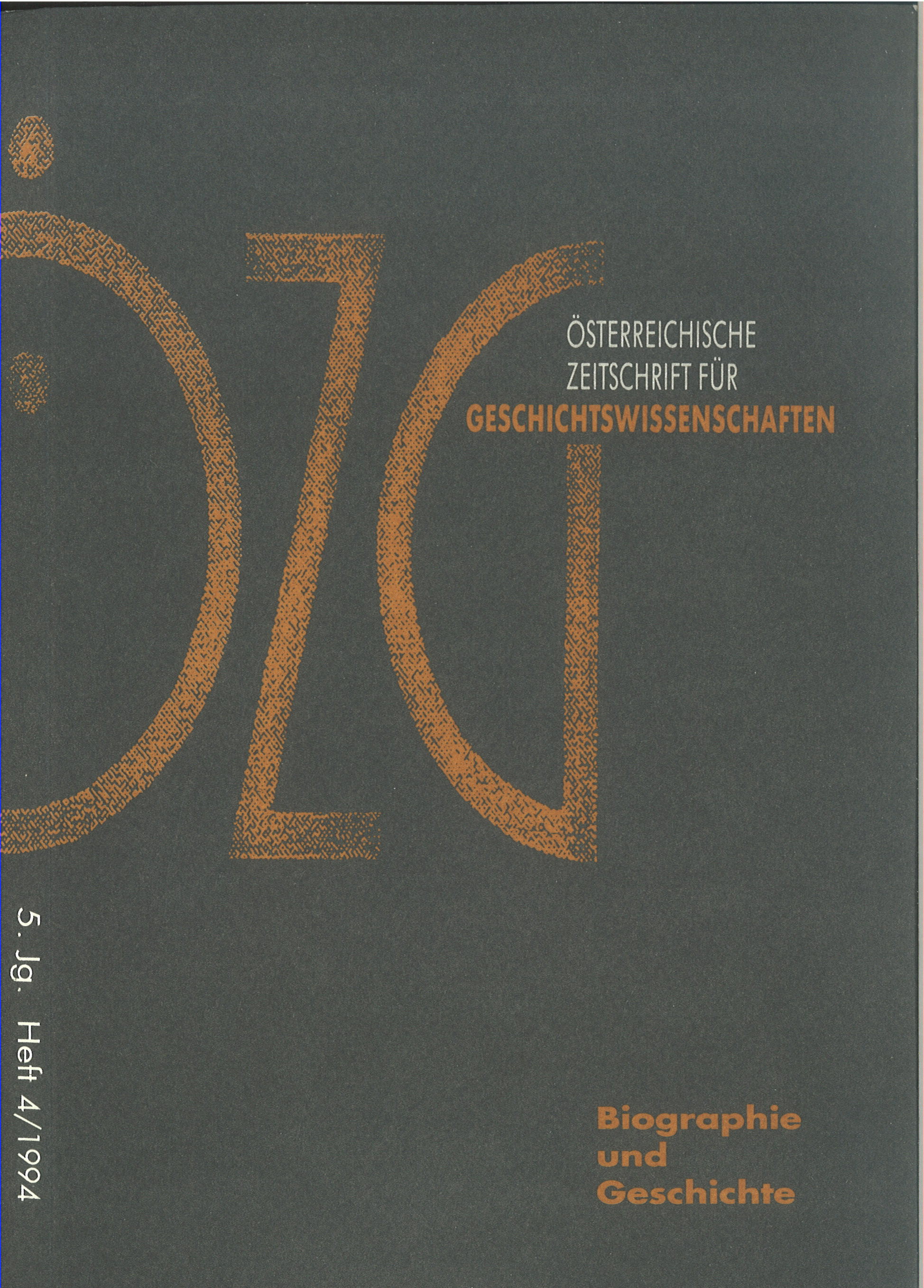Biographical Models in Modern German Literature
DOI:
https://doi.org/10.25365/oezg-1994-5-4-2Abstract
Having realized the untenableness of a quasi-omniscient biographical perspective, traditional historiography as well as the traditional novel are both faced with the same problem. Biographers have to abandon timehonoured patterns of teleological narrative techniques. In the literary field this led to the socalled crisis of the novel, which during the course of the twentieth century was eventually overcome by the insertion of fictitious passages, speculative interpretations and personal statements by the author, which in turn produced a new type of biographical novel, Sartre's socalled roman vrai. By this development biographers were pushed into the twilight zone between literature and historiography. Prismatic depictions of history from alternative perspectives of inherent - but never realized - possibilities, at times flashing back and forth between past and present and introducing a clearly recognizable element of personal comment and interpretation have been achieved.


